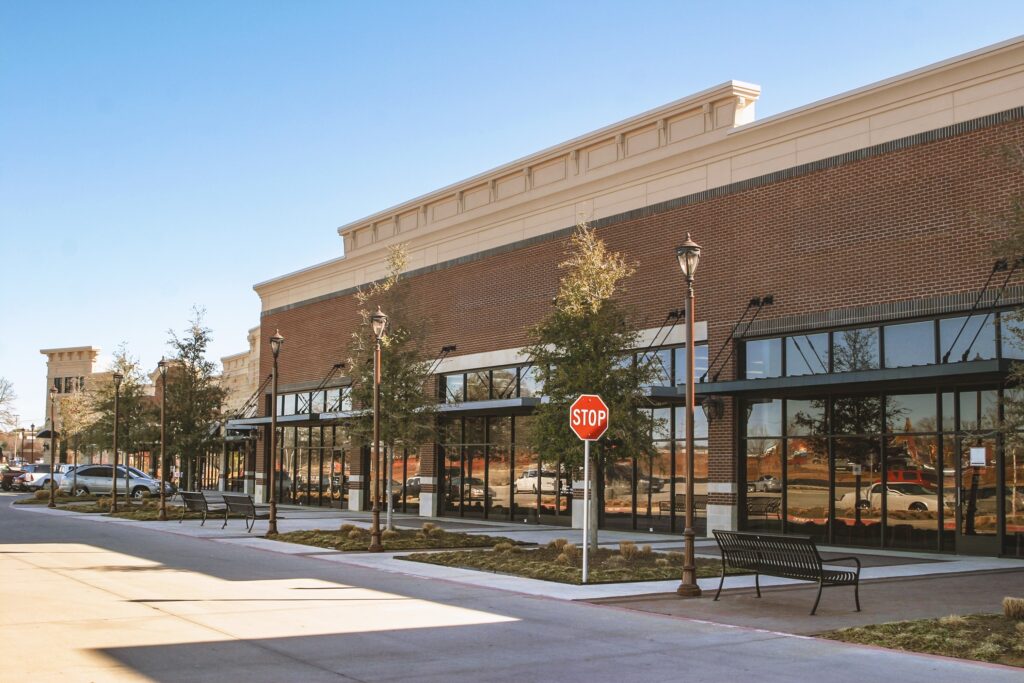
Summer can be one of the busiest times for facilities management teams, especially for grocery stores and other retailers. Between emergency A/C repairs and managing severe weather threats, it can be hard enough to keep up with reactive calls let alone planned preventive maintenance (PM) programs. This makes spring a valuable time for FM leaders to get a leg up on the summer with a facilities management checklist.
By tackling the checklist below when the weather warms up, you can significantly reduce or even eliminate some of the most common facilities management issues that summer is notorious for, including:
- A/C breakdowns
- Humid interior environments
- Condensation on refrigeration cases
- Slips, trips, and falls caused by water leakage
In addition to avoiding these classic summertime pitfalls, implementing a preventive maintenance checklist can help extend the life of assets and improve work-life balance for facilities management teams. While summer will likely always be a busy season, you’ll find that by tackling the steps below you can at the very least minimize maintenance calls and costs during the warmer months.
Summer Facilities Management Checklist
1. Make sure A/C systems are operating properly
The worst time for an A/C system to function improperly or break down is during the summer. Unfortunately, it’s also the most popular time for air conditioners to break down. This puts preventive maintenance for HVAC systems at the top of facilities managers’ checklists in the spring.
To reduce reactive A/C calls this summer, make sure all rooftop A/C systems are thoroughly cleaned and serviced as soon as the weather warms up:
- Check blowers and condensers
- Clean condenser coils
- Replace filters and belts
- Ensure fan motors are running properly
- Inspect and clean exhaust fans and ductwork
2. Manage the building envelope
The atmosphere of a building, known as its “building envelope,” can easily be compromised during the summer. “This is often caused by negative pressure in a building,” explains Steve Moss, Head of Refrigeration at City, “which results in hot air flowing into the building.”
If not handled, an improperly controlled building envelope can have a devastating impact on supermarkets, leading to a poor customer experience. When warm air blows in and increases the temperature and humidity of the building, facilities managers will notice:
- “Sweating” cases
- Fogged cases that don’t allow shoppers to see the product
- Cases that freeze up as frequently as every week
- Water on the floor from leaking cases
- Water stains or mold on ceilings
- Humid or warm atmosphere inside the store
In order to prevent building envelope issues, facilities managers should ensure the A/C is running properly and the outdoor air damper is working effectively so that it’s introducing the outside air at the same rate as the exhaust fan is getting rid of it.
“The more outside air coming in, the higher the pressure,” Steve explains. “This puts you at risk of overburdening the air conditioning unit, which means it won’t treat the air before it introduces it into place.”

3. Inspect and repair other building systems
In addition to HVAC units, check other systems to ensure they’re in proper working order before the summer season begins.
Electrical and Lighting Systems
- Review energy monitoring data to identify opportunities to increase energy efficiency
- Check electrical wiring and other electrical equipment for damage or corrosion
- Check interior lighting systems and replace bulbs if necessary
Refrigeration System
Facilities managers increasingly recognize the importance of regular refrigeration case cleaning. Inspect and clean all refrigeration cases as follows:
- Clean condenser coils and evaporators
- Ensure proper drainage at the bottom of cases
- Inspect for water leaks
- Vacuum and clean out old product
Plumbing System
With winter behind them, FM teams no longer need to worry about freezing pipes, but preventative steps should be taken to ensure everything is in working order, including:
- Check walls and ceilings for water stains and mold or mildew
- Check all pipes, valves, and appliances for leaks, corrosion, or other damage
- Test drains for clogs
- Ensure optimal water pressure
In addition to the above, make sure to thoroughly inspect and tune up any other equipment and machinery that has been dormant during the cooler months, such as lawnmowers, landscaping equipment, generators, and sprinkler systems.

4. Address the exterior
When the weather warms up, it’s a great time for FM teams to focus on building exteriors and landscaping and tend to any common area maintenance needs.
Building Structure
- Inspect all doors and windows to ensure they’re well-sealed
- Check structures for damage such as rot and rust
- Pressure wash building exteriors
- Refresh exterior paint where needed
- Inspect roof for any damage and fix any necessary repairs
- Clean out drains and gutters
- Remove debris from roof
Landscaping
- Remove debris and trash from premises
- Check irrigation systems
- Replenish and refresh mulch
- Increase landscaping cadence to 1–2 times per week, depending on your geographic region
Parking Lots and Garage
- Inspect asphalt striping and repaint if necessary
- Check pedestrian and traffic signage
- Inspect sidewalks and the parking lot for cracks and potholes and conduct any needed repairs
- Check exterior lighting, replacing any bulbs if needed
- Ensure any automatic gates or other equipment are functional
5. Consider Hiring an Integrated Facilities Management Provider
An integrated facilities management company that’s structured to provide in-house technicians according to the “self-perform” model can vastly reduce reactive maintenance calls during the summer months — or any season, for that matter — by proactively completing planned preventive maintenance (PPM) programs throughout the year.
“Our motto is, ‘City sees it first,’” says Cristee Monahan, VP of Central Operations for City. “We’re always in our customers’ stores, so in addition to getting planned PMs knocked out all year long, we always know when an issue comes up so we can take care of it right away.”
Integrated Facilities Management Solutions for Any Season
By implementing the checklist above, FM leaders can significantly lower costs and stress while extending the life of facilities equipment this summer.
At City, we offer an industry-disruptive delivery system for facilities management founded on preventive maintenance that significantly delivers exceptional service and sustained cost savings. Learn more about our integrated facilities management services.

 2016: City US is established in North America, in partnership with Southeastern Grocers (SEG), servicing over 750 supermarkets across 7 southern states.
2016: City US is established in North America, in partnership with Southeastern Grocers (SEG), servicing over 750 supermarkets across 7 southern states. 1985: Willie and Susan Haughey establish City Refrigeration Holdings (UK) Ltd in Glasgow, UK.
1985: Willie and Susan Haughey establish City Refrigeration Holdings (UK) Ltd in Glasgow, UK. 2009: City Australia launches in Melbourne, in partnership with Coles, servicing over 700 supermarkets across the country.
2009: City Australia launches in Melbourne, in partnership with Coles, servicing over 700 supermarkets across the country. 2015: City Asia launches in Kuala Lumpur, Malaysia, in partnership with Dairy Farm, servicing over 205 supermarkets across the region.
2015: City Asia launches in Kuala Lumpur, Malaysia, in partnership with Dairy Farm, servicing over 205 supermarkets across the region.